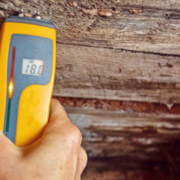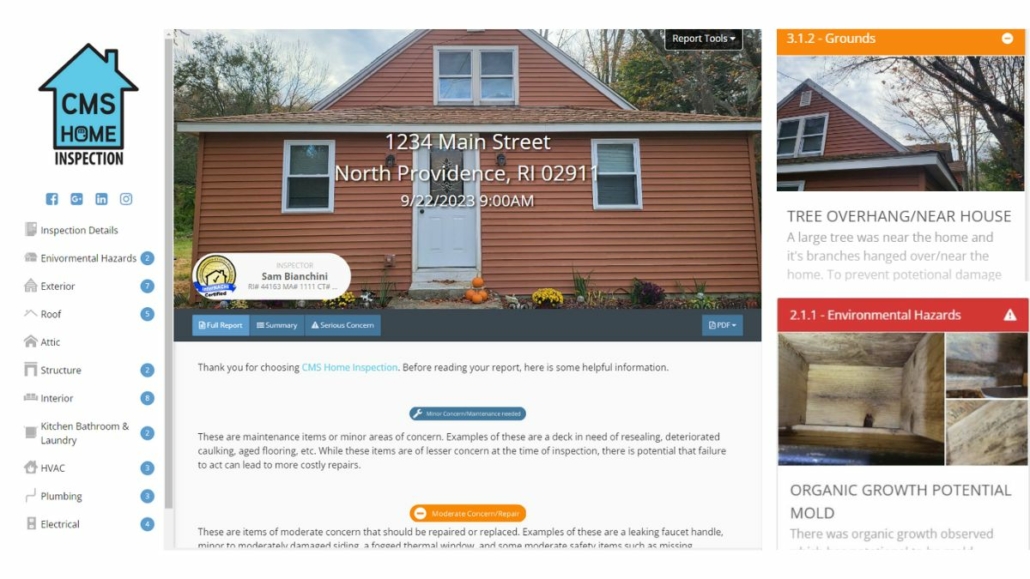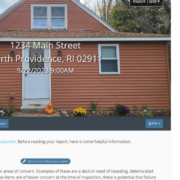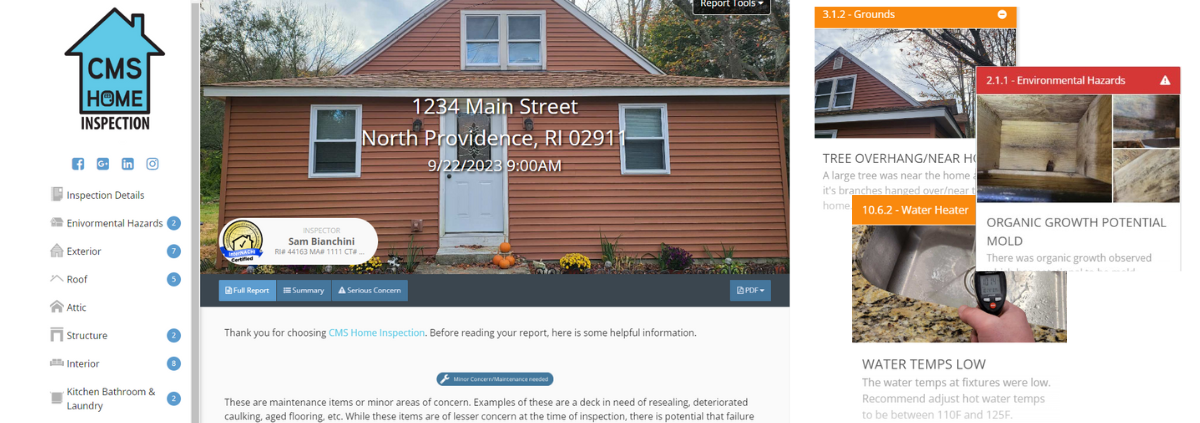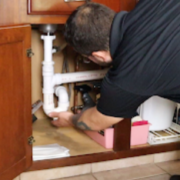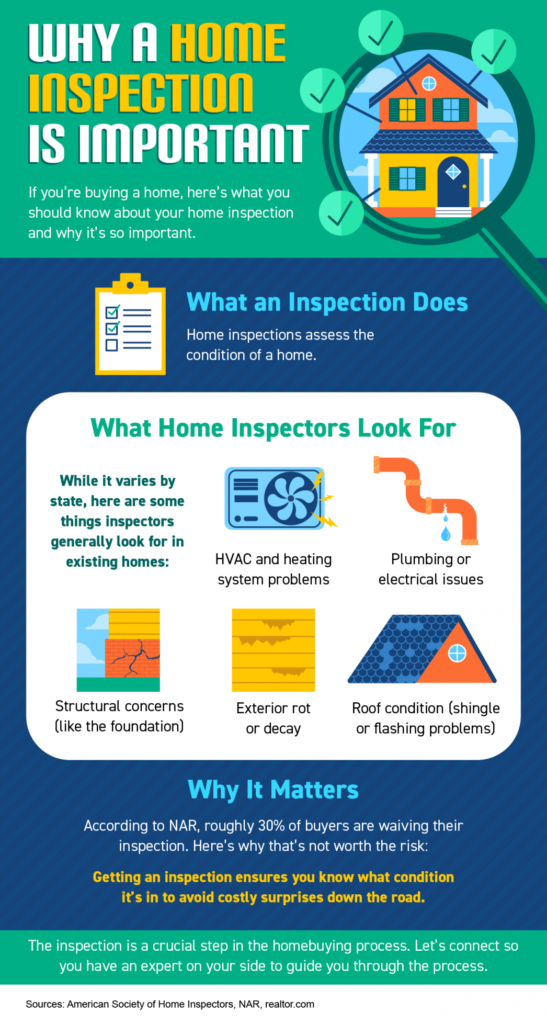While moldy cheese is a delicacy in some places, a moldy home could mean trouble for you and your family. Around 70% of homes have mold, and about 28% of the population suffers from health problems. Whether buying a new home or making sure your existing home is healthy, when you inspect for mold in your home you will save yourself financial and physical health troubles in the future.
A mold inspection is not the same as a standard home inspection. A mold inspection is essential for several conditions. To understand why it’s so important to inspect for mold in your home we need to understand what mold is, what causes it, what it can do to your home, and what mold’s health effects are.
What is Mold?
There are many different kinds of mold. When mold grows inside your home it has the potential to affect not only your home’s structure but also the health of you and your family. Simply put mold is a type of fungus.
There are many different types of mold – all destructive, though some are more threatening to human health than others. A few common types of mold include alternaria, aspergillus, penicillium, cladosporium, and stachybotrys. Stachybotrys is commonly referred to as “black mold”.
Common building materials such as wood and drywall act as a food source for mold. When these materials become wet, mold growth can occur. As mold grows, it releases spores into the air, which can then be inhaled, leading to a myriad of health concerns.
Mold can sometimes be seen with the naked eye, but it can also be hard to spot. Tiny spores are invisible to the naked eye, and mold can thrive in crevices, behind walls, and in nooks and crannies, where it can go undetected for a long time. Mold can sometimes be detected through smell, but sometimes it’s difficult to detect at all. That’s why a professional mold inspection is so important. Experts know where to look and what to look for to detect even hard-to-find mold and can recommend methods to stop it in its tracks.
If you see any water damage in a house, that’s a key indicator that you need a mold inspection. If you smell a damp, rotting, or unpleasant smell anywhere in the house, that’s another sign. But making a mold inspection a routine part of the home-buying process is just good sense, regardless of whether there are signs or not. Mold can go undetected, but that doesn’t mean it’s not damaging the home’s structure and the health of those living in it.
What Causes Mold in a Home?
Mold is generally caused by excess moisture, poor ventilation, humidity, leaking pipes, flooding, and various forms of water damage. Mold exposure can lead to a slew of negative health consequences like an increase in allergies, asthma, or even flu-like symptoms. Long-term mold exposure can even lead to severe respiratory issues.
What Mold Can Do to a House
Mold causes damage wherever it spreads. It causes unpleasant stains and foul smells in your home. Some fungal growth can cause damage to your home, commonly called “wood-destroying fungus.” Left untreated over time, these fungi can weaken wood framing members.
Mold growth suggests water damage and damp conditions in a home, which are the same conditions needed for other, more pernicious forms of decay to take hold. Conducting a mold inspection can help you ascertain if there are likely to be more significant structural issues going forward.
The Health Effects of Mold Exposure
The nastiest characteristic of mold is its health consequences and you don’t want to leave your family’s health up to chance. Exposure to mold contamination can cause a range of health problems, including allergic reactions. While not all varieties of mold are toxic, mold spores can have a negative effect on your home’s air quality.
Oftentimes people neglect to appreciate mold for the health concern that it is, which can lead to breathing problems and worsening of pre-existing conditions like asthma or COPD. This is especially true concerning buildings with a large amount of indoor mold growth.
The most common types of health problems associated with mold are:
- Allergies
- Allergic reactions (which can be severe)
- Sinus infections
- Lung inflammation
- Respiratory infections
- Asthma attacks and other breathing problems
- Headaches
- Fatigue and irritability
- Wheezing and coughing
Young children and seniors tend to be most harshly impacted by the presence of mold. Additionally, people with compromised immune systems are far more susceptible to mold-related health issues.
All of the most common household molds have been linked to significant health issues. Some of the more dangerous and toxic types of mold can even cause severe and chronic health conditions. This is known as mycotoxigenic exposure, and it can cause:
- Pulmonary fibrosis (scarring in the lung tissue)
- Liver and kidney damage
- Toxic nervous system
- Pregnancy complications
- Digestive and heart conditions
- Cancer
And sensitivity to mold can be cumulative. This means that the more often you are exposed to mold, the more sensitive you may become. If you are experiencing any of the above unexplained symptoms, contact a healthcare professional to rule out other causes and schedule a mold inspection right away.
The health issues associated with mold problems are why it’s important to routinely inspect for mold in your home (and not just when you buy your home!) if only to ensure a healthy indoor environment for you and your family. And, when you get a mold inspection before buying your home, you’ll be reassured that your new home’s environment and air quality are healthy enough to support your family.
While CMS Home Inspection makes sure to inspect areas where mold could potentially grow during a home inspection, we also understand that the naked eye isn’t always enough. For complete efficiency, when we inspect for mold in your home we utilize specialized equipment and collect samples of our findings to send to an accredited laboratory for lab testing.
Why Inspect for Mold in Your Home?
Qualified environmental testing professionals make use of the latest expertise and technology to not only confirm or deny the presence of mold in a home but also to identify potential high-risk areas for future mold growth. They use fully calibrated air-sampling devices, infrared cameras, and digital hygrometers to inspect and measure the moisture levels in a home.
There’s no substitute for experience and expertise when it comes to mold detection. When considering a new home purchase, booking a certified mold inspection with CMS Home Inspection should be an essential step in the home-buying process. And, to protect your family’s health you should regularly inspect for mold in your home if you have any moisture issues in your house. Click here if you want to schedule a mold inspection today!

